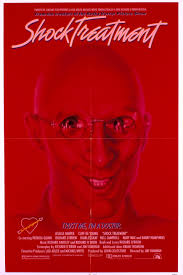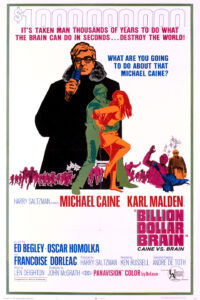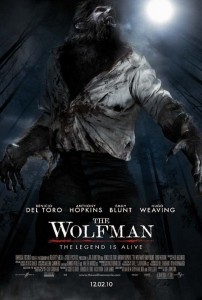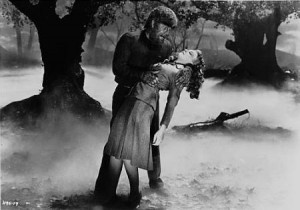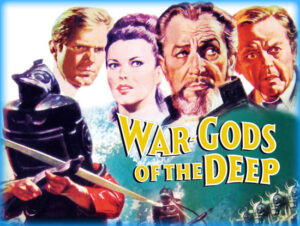Shock Treatment, made following the cult success of The Rocky Horror Picture Show, started its cinematic existence under two cursed stars, the folly of attempting to craft a film to be a cult hit, something that nearly aways fails, and the terrible timing of hitting production during a writers’ strike. A bomb at the box office and with the cult crowd, Shock Treatment is film discarded and nearly forgotten.
And yet these days it haunts my thoughts.
Budgets and strikes reduced the original vision until the film’s setting transformed symbolically in a single location, a television soundstage where all the action and the character’s lives are played out for the live audience. A bizarre collection of characters populates the story, a seemingly blind game show host, played by the recently late Barry Humphries, a brother/sister pair of actors (Richard O’Brien & Patricia Quin) portraying doctors on a hit medical show from which the viewers take real medical advice, and puppeteering all of it the media creation and fast-food spokesman, Farley Flavors (Cliff de Young in a dual role). Flavors manipulates opinion and emotions with his broadcasts finally presenting Jante (Jessica Harper) while drugged out of her senses as a model of mental health to sell the audience on committing themselves to his mental institution. Even Janet’s rejection fails to derail the plot, with Flavors discarding her as trash, the sudden reversal irrelevant to the masses under his spell.
I cannot but see the striking parallels between this 41-year-old film and today’s political environment. In 2019 I wrote another essay about this foresight and the 4 years that have passed has only strengthened the film prophetic nature. It is far too easy to see that the wildly cartoonish character of Farley Flavors is a dim shadow of the real-life threat that is Donald Trump. Impeachments and insurrections have no more damaged his ability to control his own cult than Janet’s rejects damaged Flavors. The film’s depiction of the nearly irresistible pull social conformity and the facade of community from the fake history of Americana of the 50s is eerily predictive of the entire MAGA movement, that could so easily and without any irony adopt the song ‘Thank God I’m a Man’ as their anthem.
I had never before considered Shock Treatment a horror film but it undoubtedly. lives in that space now.
